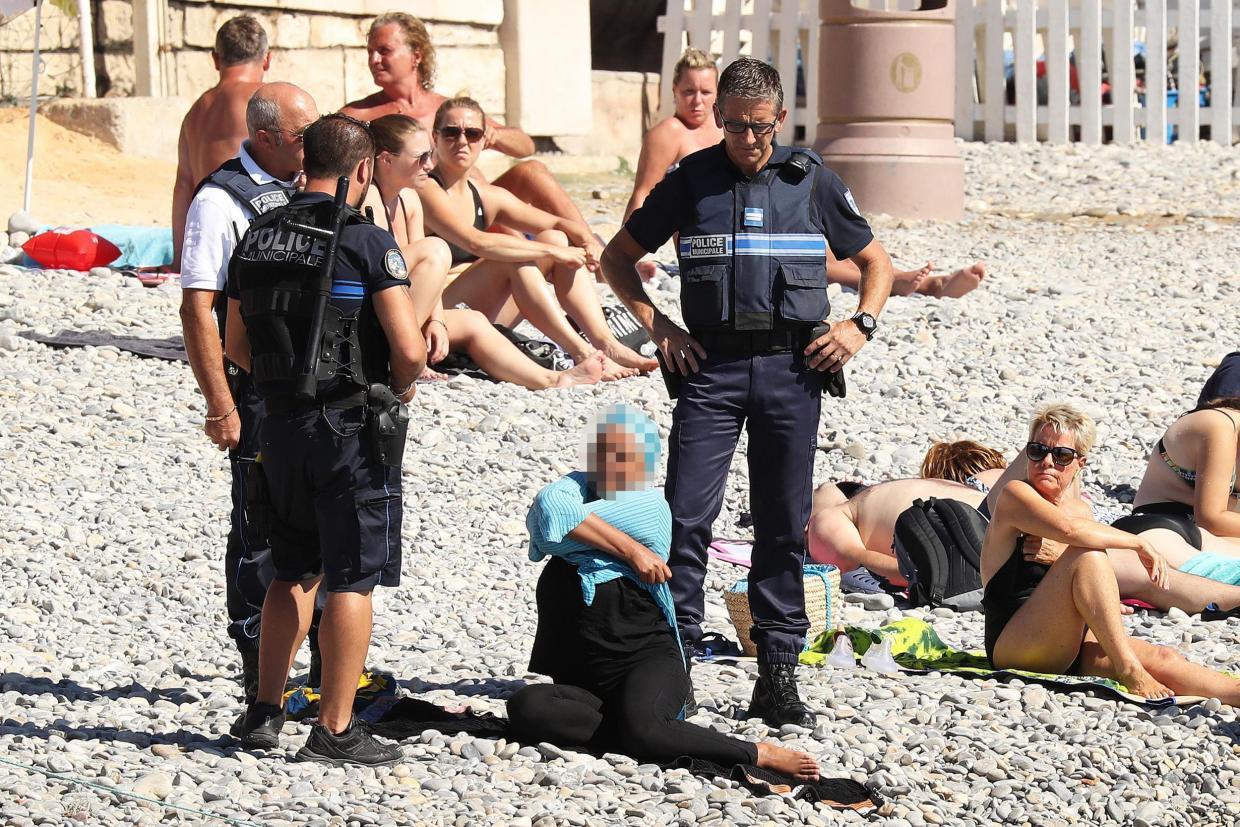Paris is opening a space for nudists because being naked is OK in France but wearing a burkini will get you arrested
It will come as a kick in the teeth to the women who were forced out of their clothes across beaches by armed police in France this summer that a nudist park in Paris has been approved, because the rights of those who would rather eschew their clothes must be respected. The hypocrisy is absurd

Your support helps us to tell the story
From reproductive rights to climate change to Big Tech, The Independent is on the ground when the story is developing. Whether it's investigating the financials of Elon Musk's pro-Trump PAC or producing our latest documentary, 'The A Word', which shines a light on the American women fighting for reproductive rights, we know how important it is to parse out the facts from the messaging.
At such a critical moment in US history, we need reporters on the ground. Your donation allows us to keep sending journalists to speak to both sides of the story.
The Independent is trusted by Americans across the entire political spectrum. And unlike many other quality news outlets, we choose not to lock Americans out of our reporting and analysis with paywalls. We believe quality journalism should be available to everyone, paid for by those who can afford it.
Your support makes all the difference.These days, it’s confusing to know what I, as a woman, should wear. I’m not talking about the struggle of deciding whether to go for denim cut-offs or a floral dress, or about keeping my outfit weather-appropriate. No, that’s a relatively simple task. What I’m talking about are the politics that now surround almost every other sartorial choice a woman can make – the kind of politics that have seen Paris create a designated space for naked people while, elsewhere in France, women are arrested on their beaches for wearing the wrong kind of beachwear.
It’s ingrained in pretty much every woman that she has to toe the line with her dress anyway, lest she be seen as a “slut” or too “conservative” and frumpy”; that she should wear just the right amount of “barely there” make-up so she looks “pretty” but not “overdone” and “try-hard”, while avoiding the insult that she “doesn’t make an effort with her appearance”. Oh, and nowadays, of course, if she wears Islamic dress, then she must be “oppressed” and in want of liberation from the clothes that cover her body. Cue the burkini police.
Photographs showing armed French police asking women to remove their burkinis swamped our newsfeeds this summer. The two-piece sportswear, which is made up of a headscarf and long-sleeved tunic, and which is preferred by some Muslim women, is not too dissimilar to wetsuits regularly warn by surfers. The religious connotations of the burkini, however, mean that it has become acceptable for women enjoying themselves on French beaches to be publicly shamed, humiliated and ordered to strip in front of armed police.
It will come as a kick in the teeth to the women who were forced out of their clothes across beaches in France this summer that a nudist park in Paris has been approved, because the rights of those who would rather eschew their clothes must be respected. The park, which could open as nearly as next year, is likely be located on the outskirts of the city – in either the Bois de Boulogne or the Bois de Vincennes areas – in what has been described as “a regulated setting with no threat to public order”.
The hypocrisy is absurd. A strict form of secularism known as laïcité is enshrined in French law and has been the basis of previous French bans on headscarfs in state schools and the face-covering niqab in public. Many in France argue that the burkini is oppressive to women, epitomising patriarchal control over their bodies, and therefore can be banned in the name of freedom from coercion. But the very act of banning the dress is in itself coercion. Headscarves, niqabs and burkinis are not compulsory in Islam; they are a simple matter of clothing choice for some Muslims.
What the planned opening of Paris’ nudist park shows is that it is clearly perfectly okay to wear no clothes at all but if you dare to cover yourself up in the wrong way, you face arrest. It tells women that “liberté, égalité, fraternité” doesn’t actually always apply to them, because they’re damned if they do and damned if they don’t.
It’s about time that this notion of freedom of expression, something that France holds as a sacred value, actually applied to all people – women included – and not just an exclusive, predominantly male, few. Ceasing to police what women can and cannot wear would be a good place to start.
Join our commenting forum
Join thought-provoking conversations, follow other Independent readers and see their replies
Comments